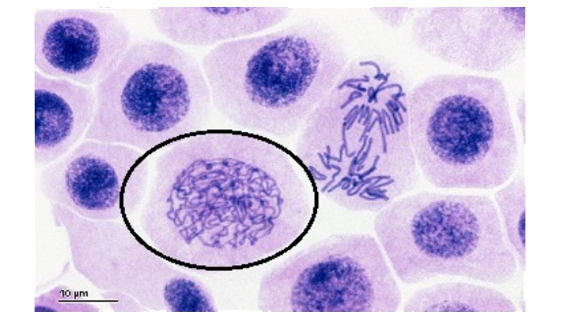What is cell division ?
Step-by-Step Text Solution for the Question: What is Cell Division?
1. Definition of Cell Division:
- Cell division is the biological process through which a parent cell divides to form two or more daughter cells. This is a fundamental process for growth, reproduction, and repair in living organisms.
2. Types of Cell Division:
- There are two main types of cell division: mitosis and meiosis.
3. Mitosis:
- Mitosis is a type of cell division that results in the equal distribution of genetic material.
- In mitosis, the ploidy level (the number of sets of chromosomes) remains the same in the daughter cells as it was in the parent cell.
- For example, if the parent cell is diploid (2n), the daughter cells will also be diploid (2n).
- This type of division is often referred to as equational division because the genetic content is conserved.
4. Meiosis:
- Meiosis is another type of cell division, but it serves a different purpose.
- It is known as a reductional division because it reduces the ploidy level by half.
- During meiosis, the genetic material is divided in such a way that if the parent cell is diploid (2n), the resulting daughter cells will be haploid (n).
- This process is crucial for sexual reproduction, as it produces gametes (sperm and eggs) with half the genetic material.
5. Conclusion:
- In summary, cell division is a vital process that allows organisms to grow, reproduce, and repair tissues. It can occur through mitosis, which maintains the ploidy level, or meiosis, which reduces it.
- Cell division is the biological process through which a parent cell divides to form two or more daughter cells. This is a fundamental process for growth, reproduction, and repair in living organisms.
- There are two main types of cell division: mitosis and meiosis.
- Mitosis is a type of cell division that results in the equal distribution of genetic material.
- In mitosis, the ploidy level (the number of sets of chromosomes) remains the same in the daughter cells as it was in the parent cell.
- For example, if the parent cell is diploid (2n), the daughter cells will also be diploid (2n).
- This type of division is often referred to as equational division because the genetic content is conserved.
- Meiosis is another type of cell division, but it serves a different purpose.
- It is known as a reductional division because it reduces the ploidy level by half.
- During meiosis, the genetic material is divided in such a way that if the parent cell is diploid (2n), the resulting daughter cells will be haploid (n).
- This process is crucial for sexual reproduction, as it produces gametes (sperm and eggs) with half the genetic material.
- In summary, cell division is a vital process that allows organisms to grow, reproduce, and repair tissues. It can occur through mitosis, which maintains the ploidy level, or meiosis, which reduces it.
Topper's Solved these Questions
- CELL CYCLE AND CELL DIVISION BOOK - AAKASH INSTITUTE ENGLISHCHAPTER - CELL CYCLE AND CELL DIVISION EXERCISE - EXERCISE
20 Videos
- CELL CYCLE AND CELL DIVISION BOOK - AAKASH INSTITUTE ENGLISHCHAPTER - CELL CYCLE AND CELL DIVISION EXERCISE - Assignment (SECTION - A ) (Objective type Questions )
50 Videos
- CELL CYCLE AND CELL DIVISION BOOK - AAKASH INSTITUTE ENGLISHCHAPTER - CELL CYCLE AND CELL DIVISION EXERCISE - SECTION-D (Assertion-Reason Type Questions )
10 Videos
- BREATHING AND EXCHANGE OF GASES BOOK - AAKASH INSTITUTE ENGLISHCHAPTER - BREATHING AND EXCHANGE OF GASES EXERCISE - ASSIGNMENT SECTION - D
11 Videos
- CELL:THE UNIT OF LIFE BOOK - AAKASH INSTITUTE ENGLISHCHAPTER - CELL:THE UNIT OF LIFE EXERCISE - Try Yourself
26 Videos
Similar Questions
Knowledge Check
Which of the following is associated with cell division?
AcentrioleBribosomesCmitochondriaDchloroplast
The structure which initiates cell division in animal cell.
View SolutionWhich one is connected with cell division ?
View SolutionWhich one induces cell division ?
View SolutionWhat is the cause of cell division ?
View SolutionWhich of the following helps in cell division?
View SolutionWhich is called direct cell division ?
View SolutionIdentify the circled phase of cell division .

View Solution
